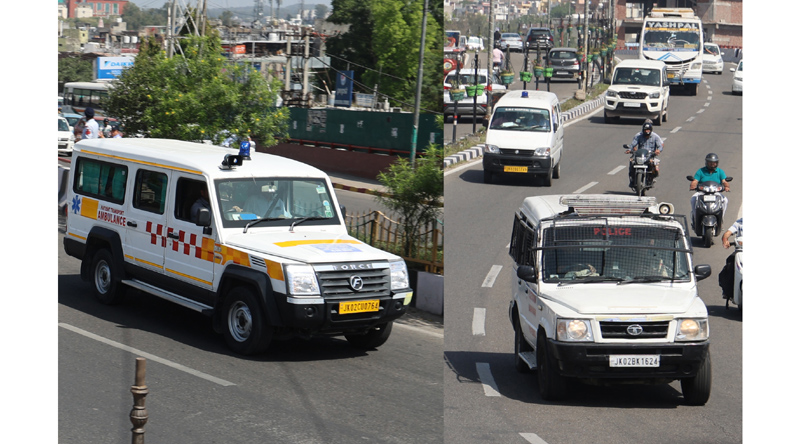The unhindered movement of ambulances is not just a matter of convenience but a matter of life and death. The recent directives issued by the Traffic Department in coordination with the Directorate of Health Services, Kashmir, mark a crucial step towards prioritising the swift transportation of critically ill patients to tertiary care hospitals. This move, aimed at penalising obstructions to ambulance passage, reflects a commendable effort to uphold the sanctity of human life on the roads of Kashmir. The urgency of these directives cannot be overstated. Time is of the essence in medical emergencies, where delays can have catastrophic consequences. By imposing a significant fine and imprisonment for obstructing ambulances, the authorities send a clear message: the safety and well-being of individuals in dire need of medical attention take precedence over all else. Such measures serve as a deterrent against callous disregard for emergency vehicles and instil a sense of responsibility among commuters to yield the right of way.
Crucially, these directives are not merely punitive but also proactive. They emphasise the importance of coordination between ambulance drivers, healthcare facilities, and traffic authorities to streamline emergency response procedures. The mandate for hospital administrators to liaise with the Traffic Department ensures that ambulances receive priority clearance during transit, minimising the risk of delays that could exacerbate patients’ conditions. Effective communication lies at the heart of this initiative. Real-time updates on ambulance locations and expected arrival times enable traffic authorities to facilitate smoother traffic flow and make informed decisions to expedite emergency responses. This synergy between healthcare providers and the Traffic Department exemplifies a collaborative approach towards enhancing public safety and healthcare delivery systems. However, the success of these directives hinges on their implementation and enforcement. It is imperative for both the Traffic Department and healthcare institutions to ensure strict adherence to the prescribed protocols and vigilantly address any instances of non-compliance. This directive is a proactive step, and it will be advisable to implement this order in the entire UT instead of only the Kashmir division.
Trending Now
E-Paper


